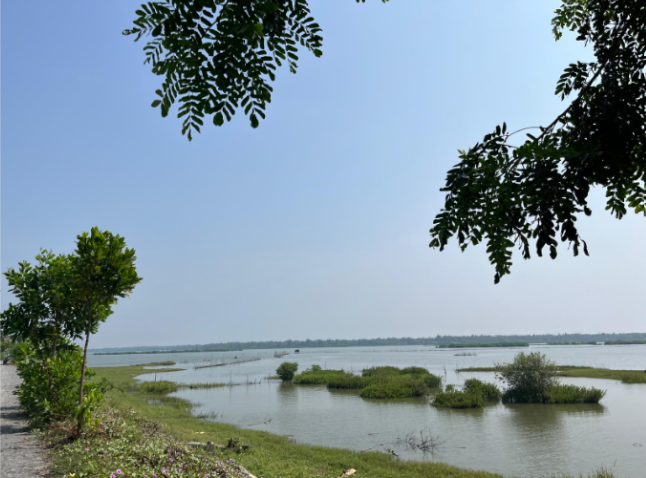By Mr. Yunes Abou El Wafa and Mr. Eduardo Cardoso
As the global community gathers at COP30 to advance the implementation of loss and damage mechanisms, the lived realities of smallholder farmers in rural India emphasize the urgency while showing a pathway to adapt. In coastal villages in the Puri district of Odisha climate change is no longer a distant threat, it is an everyday struggle woven into the rhythm of agricultural life.
For generations, these communities have relied on paddy, betel, and vegetable cultivation to sustain their livelihoods. Yet, changing rainfall patterns, recurring cyclones, and increasing temperatures have disrupted this balance. Crops fail, ponds dry up, and the uncertainty of monsoon rains pushes families into debt or migration. Working on Local Adaptation Planning (LAP) developed through participatory process brings these stories to the forefront, demonstrating how local adaptation is key to addressing loss and damage.

Image 1: Coastal District of Jagatsinghpur, Odisha, India. Copyright of Lauren MacLeod
As any farmer will tell you, food security usually depends on water availability. For the Farmers of Odisha this means that the water scarcity they face due to the changing climate is their single most pressing issue. With irrigation systems blocked, borewells unaffordable, and rainfall unreliable, farmers face compounding risks. The impacts extend far beyond crops. Food shortages, heat-related illnesses, and declining incomes are eroding community stability, driving people to lose their livelihood and leave their land. As one farmer from the village of Runkei, shared, “Despite quality seeds, without irrigation, the harvest fails before our eyes.” For families like his, loss and damage are not abstract categories, they represent the disappearance of food security, opportunity, and dignity.
Yet, within these challenges, the Local Adaptation Planning highlights pathways of resilience. Developed by listening to the voices of the community, men and women, young and old, working on the fields and not, it is clear that communities know their challenges and what they need. These community led adaptation measures are locally owned, feasible and trusted ensuring lasting impact. In rural Odisha this is the installation of borewells, electrification of fields through grid or solar connections, and restoration of blocked canals. For Loss and Damages in general, this shows the importance of local solutions and listening to the people affected by climate change. Sustainable and effective Loss and Damage mechanisms need the community voices first and build on them to develop structural solutions.
After all, large scale implementation demands more than local initiative. It requires integration with national and international frameworks for loss and damage finance. As most community members agreed, they often know what they need to adapt and need with political and financial support can reduce the impact of climate change on their food security. For them this extends past technical interventions into mechanisms of justice and restoration of agency to those who have contributed least to the climate crisis yet bear its heaviest costs.
In the villages of Odisha the crops planted might change, the seasons might shift and life will be different, but they will thrive when local voices are the basis for global action and when the people affected by Loss and Damages take a central role in the development and implementation of solutions ensuring food security for future generations.
